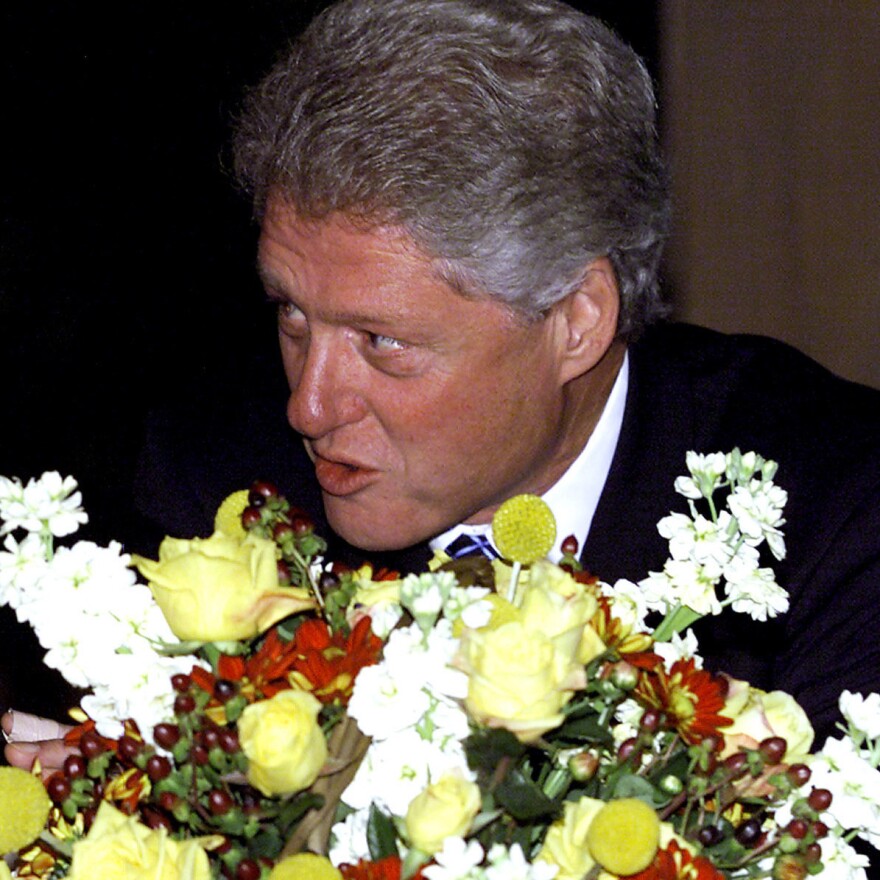With all the talk in contemporary American politics about game changers ... what about name changers?
Through the years there have been elected officials who were born with different names from the ones that were on the ballots. The politicians changed their names for all kinds of reasons.
But in the end, does the name of a politician make a difference to the electorate?
A recent example: Texas state Sen. Dan Patrick, who was born Dannie Scott Goeb. A Tea Party candidate, Patrick is running for lieutenant governor against Lt. Gov. David Dewhurst. According to the Associated Press, Dewhurst opened a debate not long ago with this dig: "I am David Dewhurst, and I've been David Dewhurst since I was born."
Dewhurst also posted a parody video, "Dan Patrick sings 'The Ballad of Dannie Goeb,' " suggesting that Goeb changed his name to cover his past.
On his website, Patrick explains that he changed his name years ago — at his boss's suggestion — for radio work in Pennsylvania.
But are there times when moniker morphing can help win an election? Apparently yes. In the late 1980s, Kentucky accountant Robert Mead won the state treasurer's office after changing his legal name.
To Robert Mead C.P.A.
Name Generator
Image and branding consultant Patsy Cisneros of Corporate Icon — whose client list includes Citgo and Disney — says that there are circumstances under which she would recommend a name change very early in the career of a politician, preferably before she or he runs for office.
"Times change," says Patsy, whose firm also counsels politicians, "and popular names through past generations become less 'relatable' to the current voting generations." She might, for instance, suggest changing a man's first name from Leslie to Gerald or a woman's first name from Mildred to Jennifer.
She might also suggest altering a name if it's hard to pronounce. "A candidate's name should be easy to repeat by followers," Patsy says, "so they may encourage friends and community to vote for them."
(In the cases of Charlie Crist, whose father was named Christodoulou, and Spiro Agnew, whose father was named Anagnostopoulos, the family name was simplified before the pols were born.)
And Patsy says that in some parts of the country an international-sounding name — post 9/11 — "may be a concern when there is no opportunity or practicality to explaining the name."
Voters choose certain candidates because they can relate to the candidates, Patsy says. If changing a name improves "relatability," a contender is "more likely to be voted into office versus an odd and unfamiliar name causing doubt and voter avoidance."
Patsy even has suggestions for how to choose a name: "I would suggest a first or last name that already exists in their family tree, when possible. Another option is to select names from important influencers in your life such as foster families, mentors and historical figures. This adds a positive story to explaining how you are honoring someone special when you changed all or part of your name."
-------------------------------------------------------------------
The Protojournalist: Experimental storytelling for the LURVers – Listeners, Users, Readers, Viewers – of NPR. @NPRtpj
Copyright 2021 NPR. To see more, visit https://www.npr.org.




